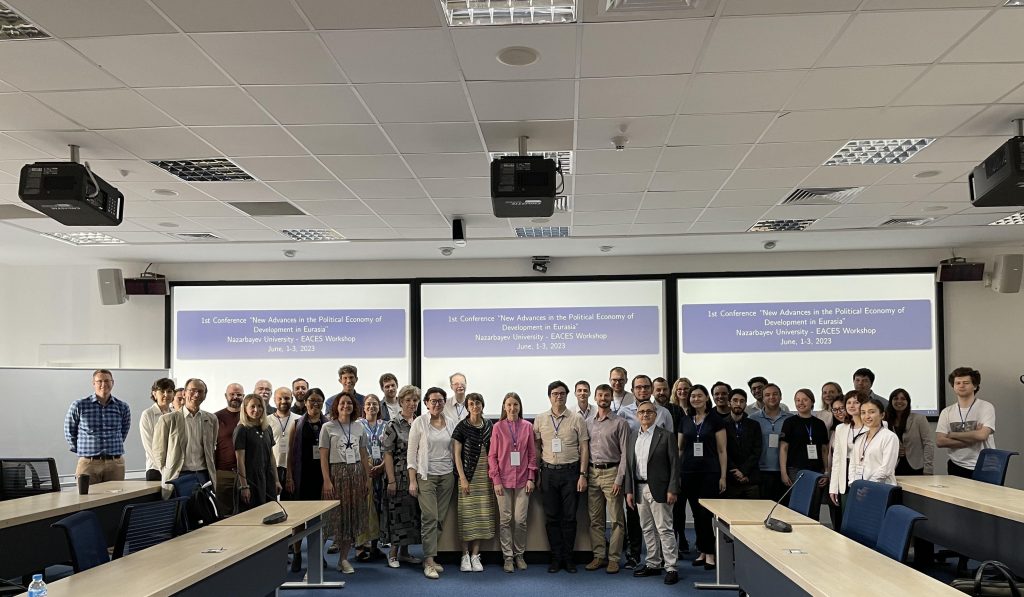SSH holds the 1st Conference, “New Advances in the Political Economy of Development in Eurasia.”

Nazarbayev University, together with the European Association for Comparative Economic Studies and in association with the Harriman Institute (Columbia University) and the University of Bremen, conducted the 1st Conference “New Advances in the Political Economy of Development in Eurasia” as well as NU-EACES workshop as a part of it on June 1-3, 2023. It was a three-day conference with 9-panel sessions and 35 conference speakers.
Ora John Reuter was the keynote speaker from the University of Wisconsin–Milwaukee. The main direction of his scientific work is the study of comparative political economy, elections and democratization in the countries of the former Soviet Union.
The conference included more than 35 presentations of scholars from all over the world, including, among others, Harvard University, Columbia University, Princeton University, Ghent University, Trinity College Dublin, University of Bremen, Nazarbayev University, Almaty Management University, Chinese University of Hong Kong. The presenters covered a large variety of topics, especially relevant to Eurasia: “Regional Development,” “Media, society and digitalization,” “Economic challenges,” “Trust and Collective Actions,” and “Elections and political elites.”
About 70 professors and experts took part in this event, which indicates a genuine interest in the subject of this event in the academic community. The participants and attendees assessed the conference presentations and organization at a high level and are willing to participate in the next conference.
One of the conference attendees, Dinara Pisareva, Assistant Professor at the NU Department of Political Science and International Relations, shared her opinion about the conference:
«I am genuinely impressed with how well-organized the conference was. The selection of topics was remarkably pertinent, encompassing various political and economic development aspects critical for countries like Russia, Kazakhstan, and Ukraine. The in-depth discussions provided fresh perspectives on the Eurasian region’s complex interplay between politics and economics.
What stood out to me was the diversity in the presented methodologies. It was inspiring to see a range of analytical approaches, from list and survey experiments to Qualitative Comparative Analysis (QCA) and descriptive statistics. Such a multi-faceted approach enriched the discourse and encouraged a comprehensive understanding of the subject matter.»



